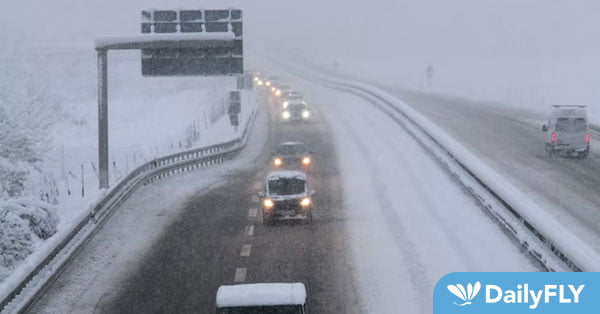LEWISTON – Before the storm strikes, make sure your home, office, and vehicles are stocked with the supplies you might need. Make sure farm animals and pets also have the essentials they will need during a winter storm.
There are a few different areas community members can prepare for the winter months. The first is at their home or work, as most of us spend more time in the office than at our homes, it is important to ensure both are equally prepared.
Your primary concerns at home or work during a winter storm are loss of heat, power, and telephone service and a shortage of supplies if storm conditions continue for more than a day. In either place, you should have these supplies available:
- Flashlight and extra batteries
- Battery-powered NOAA Weather Radio and portable radio to receive emergency information
- Extra food and water such as dried fruit, nuts, granola bars, and other food require no cooking or refrigeration.
- Extra prescription medicine
- Baby items such as diapers and formula
- First-aid supplies
- Heating fuel: refuel before you are empty; fuel carriers may not reach you for days after a winter storm
- Emergency heat source: fireplace, wood stove, or space heater properly ventilated to prevent a fire
- Fire extinguisher, and smoke alarm; test smoke alarms monthly to ensure they work properly
- Extra pet food and warm shelter for pets
Community members should also review generator safety: Never run a generator in an enclosed space. Also, make sure your carbon monoxide detector is working correctly and that the outside vent is clear of leaves and debris. During or after the storm, make sure it is cleared of snow.
Home fires are common each winter when trying to stay warm. Review ways to keep your home and loved ones safe.
The next area individuals can prepare is their vehicles. Each year, on average, more than 5,000 people are killed and more than 418,000 are injured due to weather-related vehicle crashes.
If you need to drive in snow or cold conditions, TAKE IT SLOW IN THE SNOW. Black ice can be difficult to see. If the temperature is near freezing, drive like you’re on ice–you may be.
Before you leave the house, especially before a long trip in winter, make sure all fluid levels are full and ensure that the lights, heater, and windshield wipers are in proper condition. Keep your gas tank near full to avoid ice in the tank and fuel lines and avoid traveling alone. Let someone know your timetable and primary and alternate routes.
Then, call or use the ITD 511 app for the latest traffic and road incidents, including construction and weather conditions and restrictions. Every state offers this Department of Transportation service. Call before you leave; it might change your plans. Fully check and winterize your vehicle before the winter season begins. Also, the National Weather Service out of Spokane recommends you carry a Winter Storm Survival Kit that includes the following:
- Mobile phone, charger, batteries
- Blankets/sleeping bags
- Flashlight with extra batteries
- First-aid kit
- Knife
- High-calorie, non-perishable food
- Extra clothing to keep dry
- Large empty can to use as an emergency toilet, tissues, toilet paper, and paper towels
- Small can and waterproof matches to melt snow for drinking water
- Sack of sand or cat litter for traction
- Shovel
- Windshield scraper and brush
- Tool kit
- Tow rope
- Battery booster cables
- Water container
- Candle and matches to provide light and in an emergency, lifesaving heat.
- Compass and road maps, don’t depend on mobile devices with limited battery life
Lastly, if you live on a farm or are a pet owner, the National Weather Service office out of Spokane has this last list of tips and tricks for you.
- Move animals to sheltered areas or bring pets inside. Shelter belts, properly laid out and oriented, are better protection for cattle than confining shelters, such as sheds.
- Haul extra feed to nearby feeding areas.
- Have water available. Most animals die from dehydration in winter storms.
- Make sure pets have plenty of food and water and a warm shelter.
